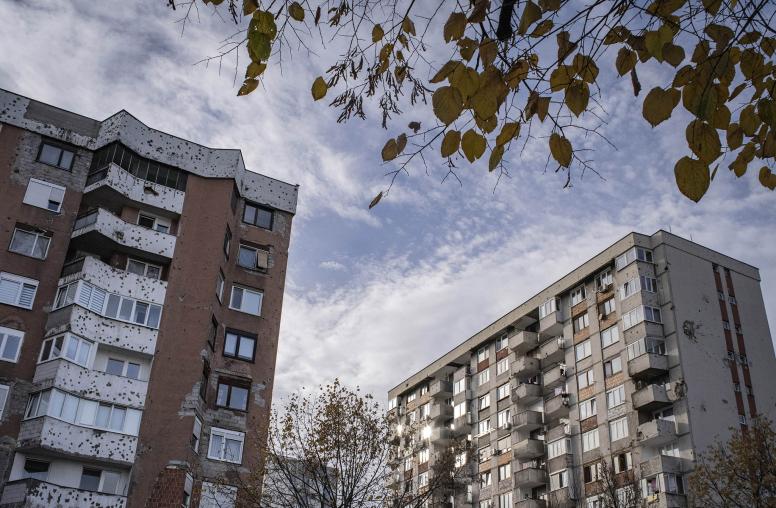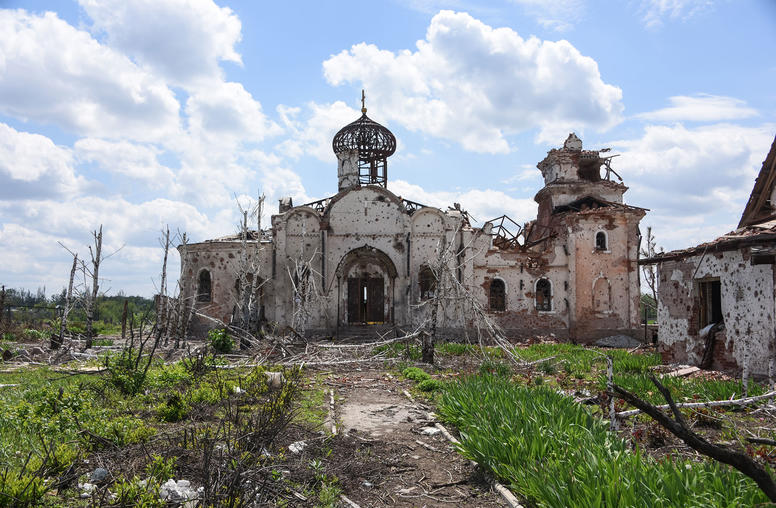 Religion
Religion
Given religion’s influence on conflict dynamics around the world, it is critical that practitioners and policymakers understand and partner with religious leaders and people of faith to build peace. For more than 35 years, the U.S. Institute of Peace has worked on the role of religion in violence and peace — advancing cutting-edge research and policy and developing effective strategies to engage religious actors, institutions and ideas across traditions in support of peace. From enhancing the peacemaking capacities of individuals and faith-based organizations to fostering meaningful dialogue within and across faiths, USIP works with local partners to promote inclusive religious peacebuilding.
Learn more in USIP’s fact sheet on Religious Engagement in Peacebuilding.
Religion and Peacebuilding: Key Dimensions
As USIP’s longest-running thematic program, the mission of the religion and inclusive societies team is to serve as the peacebuilding field’s preeminent hub of expertise and experience on understanding and working with religion and religious actors. Our distinctive strategic religious engagement tools and capabilities allow us to confront and address emerging challenges to peace and stability around the world:
Religious Literacy
We build religious literacy to help policymakers and peacebuilding practitioners understand how religious actors and institutions contribute to the mitigation, prevention and resolution of violent conflict.
Strategic Religious Engagement
We lead and support strategic religious engagement activities with religious communities and faith-based organizations who make vital contributions to the advancement of peace and stability in diverse global settings.
Innovative Policy and Assessment Frameworks
Our innovative policy and assessment frameworks provide government and civil society partners with new ways of thinking about and integrating religion in their work as well as systems for assessing and measuring the impact of religious engagement efforts.
How and Where We Work
On-the-Ground Efforts
In Colombia, we pioneered training on religion, mental health and psychosocial support for refugees displaced by violent conflict. In Ukraine, our dialogues work across religious divisions to enhance social cohesion. In over a dozen countries across Africa, the Middle East and Asia, we work with religious women to advance their inclusion in peace work.
Working with USIP’s Country Programs
Our unique religious engagement capabilities support USIP’s Afghanistan team by bringing together civil society activists and religious leaders. We also partner with the Institute’s Africa Center to engage religious leaders in Sudan on strategies for peace.
Tools and Resources for the Peacebuilding Field
We provide action guides to build the capabilities of everyone from grassroots peacebuilders to military chaplains. We produce analytic profiles of religion and conflict in countries around the world to inform policymakers and practitioners.
Featured Publications

Harnessing the Power of Sacred Sites to Foster Peaceful Pluralism
Diversity is a 21st-century reality, as people and faiths are intermixing as never before. Fear of the religious “other” leads to divisions, hostility, instability and violence impacting people and places. Consequently, it is essential to recognize how sacred spaces can also serve as powerful catalysts for peace and understanding rather than focal points for conflict. While the news often emphasizes violence and destruction, there are inspiring examples of sacred sites fostering inclusion and dialogue.

How Ukraine is Navigating Russia’s Weaponization of Religion
Since 2014, Ukraine has been trying to repel escalating Russian aggression. But while Russia is a much larger country, with far more weaponry and manpower, their efforts to undermine Ukrainian state sovereignty extend far beyond armed combat. The Kremlin has used its close ties to the Russian Orthodox Church (ROC) to weaponize religion in favor of Russian interests.

Beyond the Dayton Accords: Resolving Bosnia-Herzegovina’s Frozen Conflict
Looking out from the town hall in downtown Sarajevo, you’d be hard pressed to find evidence of the nearly four-year-long siege that devastated the city during the Bosnian War. The surrounding area is clean and filled with new and repaired buildings — even the town hall itself is a restoration of the pre-war library that once occupied the space.
Current Projects

Religion and Conflict Country Profiles
USIP’s Religion, Peace and Conflict Country Profiles (RPACCs) are concise analytic overviews of the religious landscape in countries at risk of, currently experiencing or recovering from violent conflict. RPACCs are intended to be used primarily by policymakers and practitioners looking to develop rapid familiarity with the nature and status of religion in a given country of interest as well as to understand how religion intersects with conflict and peace dynamics. The RPACC series is an outgrowth of USIP’s previous work on Religious Landscape Mapping in Conflict-Affected States.

The USIP Learning Agenda
In support of the Evidence Act and as part of the U.S. national security architecture, USIP is carrying out its own learning agenda. Peacebuilding has long been viewed as too messy and complex for evidence-based approaches — but USIP’s mix of research and practice belies that assumption.

Religious Literacy and Peacebuilding
Peacebuilders and policymakers are engaged and involved with religious actors in almost every aspect of their work. Even where religion is not an explicit presence, it is a cultural undercurrent that is immutably present — and one that is often vastly underestimated by policymakers. As USIP’s three decades of experience working at the intersection of religion, peace and conflict has shown, the teachings of various religious traditions, the lived experience of those who practice them and the knowledge of how to engage with people of faith are all essential elements of effective peacebuilding.